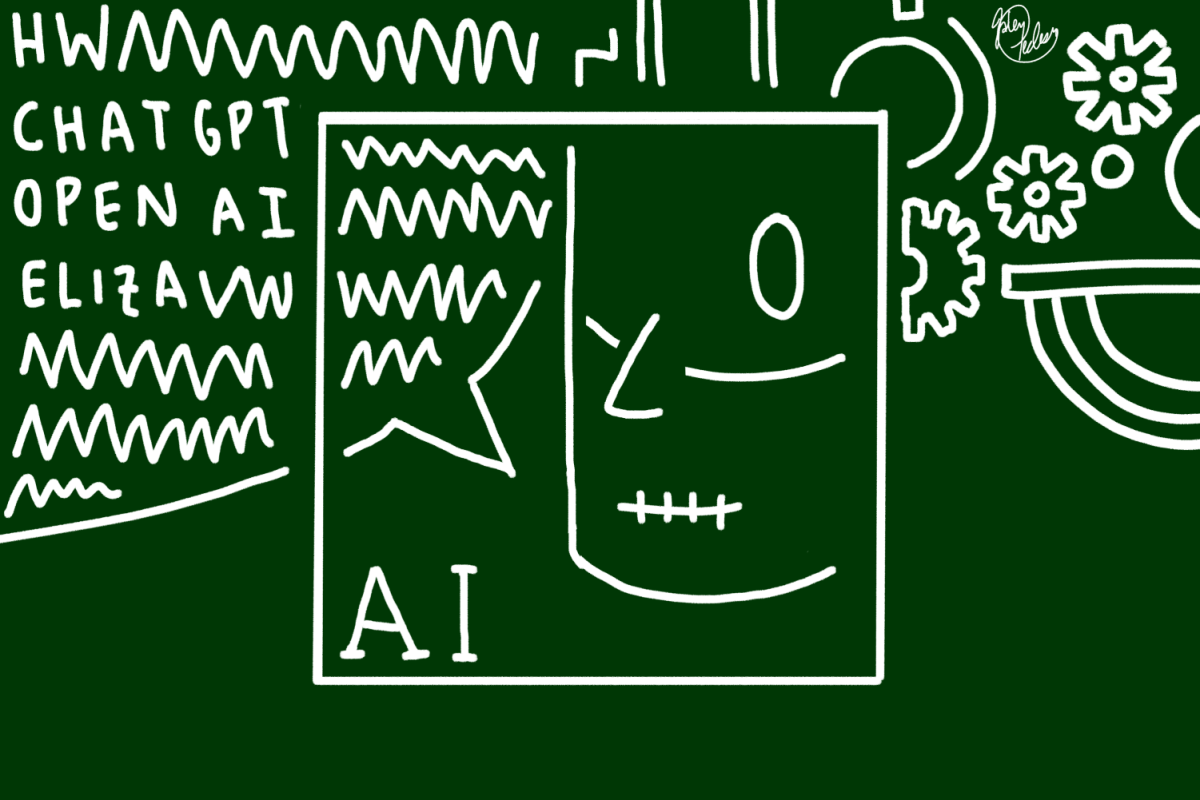Artificial intelligence is an idea that has been around since the early twentieth century. Some might say that books such as “I, Robot” and “Rossum’s Universal Robots” have accurately predicted the future where sentient robots are free to develop their own thoughts. However, only recently has AI technology developed enough to begin influencing our lives to a noticeable extent. Especially in the realm of job opportunities, artificial intelligence is stirring controversy as people fret over how advancements in this technology may impact their lives. This debate frequently arises when talking about the ethics of replacing people with AI in important medical fields, taking away entry-level job opportunities in retail for a more efficient workspace, and threatening artist’s careers with computers that lack creative thought.
AI in Healthcare
The topic of AI and robot-assisted surgery has circulated around the medical community for longer than most might expect. Since the 1970’s, doctors have researched ways to incorporate this machinery into healthcare. However, there are still problems with this type of surgical technology, and in many ways this technology performs no better than a well trained human hand. It may be steadier, but in its current state, it is just as prone to human error as anyone else without proper supervision and far more expensive besides.
There are a few hospitals in which robotics have already begun to aid doctors in performing minimally invasive surgeries. Thus far these surgeries are proving to be effective as the technology is more capable of imaging than the human eye, which is crucial to these minimally invasive surgeries, in which doctors traditionally make smaller incisions. But, none of these surgeries can be performed without a trained medical professional to operate the technology.
AI does have a place in healthcare, however, and currently its greatest contribution to the field are its ability to monitor patients and its advanced imaging capabilities. AI can use these abilities to make precise measurements and keep track of patients’ current and projected health trends. It can also potentially use stored information to reliably gather potential diagnoses for a patient, as well as optimize doctors’ more tedious labors so that they can dedicate their time to providing patients with quality healthcare.
Yet, problems arise when AI’s use in healthcare grows. For instance, there are many patients who would not consent to having AI perform an invasive surgery without a trusted doctor being in direct control. Even if they did, there are problems that could arise with mechanical failure. As such, it is best for the application of AI in the medical field to be limited, at least for a time.
AI in Retail
When we imagine the future of AI in the retail industry, we often picture a fully automated store run by self-sufficient robots. This prospect, combined with the fact that more and more people are flocking to online shopping, may result in a dramatic decrease in retail jobs for humans.
Already, this could be problematic in terms of the job market as 10.1% of non-farm jobs are in retail and if AI were to replace positions such as that of a retail clerk, a large amount of job opportunities for people who need them would be lost. One example of AI doing this would be in the case of Nourish + Bloom Market, where retail clerks have been entirely replaced by AI to make customer’s shopping experience more efficient, although there are still human employees to provide customer service. It may turn out similarly to the self-checkout boom, where sales clerks seemed to become obsolete, only to see an increase in shoplifting. If this is the case, precautions will need to be implemented to ensure that the rate of shoplifting does not also increase if and when retail becomes more AI-dependent. This is not true for online shopping where human assistants have become obsolete, replaced with AI assistants that are better at gathering and storing valuable customer data.
The approach of having AI handle the tedious tasks of inventory management, check out, and providing answers to questions is a good one when looking at it from a business perspective. Unfortunately, these advancements will likely mean that there are fewer jobs available in a world where many are already struggling to get by.
AI in Art
Due to AI’s low margin of error and purely mechanical way of “thought,” there are many positions in which it would thrive, but none is more controversial than that of an artist. While scrolling through art-sharing platforms such as Pinterest, it is already becoming increasingly common to see pieces of artwork that have been flagged as AI art.
It is no secret that creating art is a skill that takes many years to cultivate. Although many people are interested in expressing themselves through art, few have the time to devote to learning it. But, with AI, all they need is a few clicks of a button. To create most AI art, the only things required are a good description and a few reference images. Programs such as Dall-E even include ways to capture the exact art style you desire. Concerns arise when people use these programs to create art instead of learning the skills themselves.
Artists who do have the desire to create their own works may find themselves competing with AI art, as was the case when the piece Théâtre D’opéra Spatial, a creation made with AI, brought home a $300 prize for its creator, Jason M. Allen, in the Colorado State Fair Fine Arts Competition. As more and more situations like this come up, artists may find themselves increasingly pressured into doing AI art, as it is done by a machine and thus, easily outpaces artists who have devoted years of effort to their creative processes. There are, of course, ways to make art more efficient that do not greatly hinder the creative process. Many drawing programs used by artists such as Photoshop and Procreate have tools to make artists’ lives easier, and there are examples of AI being used to enhance art, such as pieces in the Shaw Gallery in Naples. But this does not mean that human artists will vanish. As is the case with hobbies, such as crochet, when people truly love doing something they will not stop doing it regardless of if it is efficient or not.
Someday, AI may be used to create art that reaches beyond the scope of what a human being can reasonably do in their lifetime, but right now, while AI may have a higher degree of precision and technical prowess than a human is naturally capable of, the “perfection” it can provide is not the same as that which is sought after in art. A machine is not capable of making purely artistic decisions. Thus, AI should be used as a tool rather than as the artist itself.
AI today has only a small amount of the utility that it could have in the future. By then, there may be more ways in which AI could become part of human life, many of which we have not thought of yet. Yet, so long as we continue to live and work, I do not believe that AI will be able to take our jobs away from us. AI is first and foremost a tool, and I look forward to seeing what we will accomplish with it in the future.









